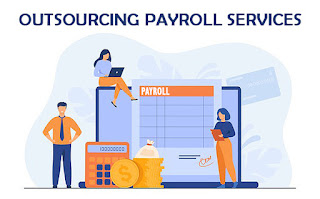All what you need to know about BAS---- Business Activity Statement
No one loves paying taxes. However, as a small entrepreneur,
this is a reality. Numerous entrepreneurs end up dodging the submission of
their Business Activity Statement (BAS) prompting superfluous penalties and
headaches.
A BAS is a form that you fill out somewhere between one and twelve times a year, contingent upon your business size. The ATO utilizes the information on your BAS to work out your GST bill or refund. It's likewise utilized for business income tax (in case you're in the pay-as-you-go system), employee income tax, luxury car tax, fringe benefits tax, wine equalization tax, and fuel tax credits.Common acronyms found on the BAS.
- ATO = Australian Taxation Office
- BAS = Business Activity Statement
- GST = Goods and Services Tax
- PAYGW = Pay as you go Withholding
- FBT = Fringe Benefits Tax
- LCT = Luxury Car Tax
- WET = Wine Equalization Tax
- FTC = Fuel Tax Credits
- GST Registration
How frequently should
you lodge your BAS?
The BAS is required to be held up either monthly or
quarterly. In case you are a monthly lodger, the due dates are 28 days after
month's end, for instance, January BAS is due for payment and lodgment 28
February.
If you are a quarterly lodger, the reporting dates are
July-September, October-December, January-March, and April-June. The due dates
for these BAS are 28 October, 28 February (an extra month because of Christmas)
and 28 April.
If you utilize the administrations of a BAS or Tax Agent, at
that point you will be qualified for an additional month for lodgment for each
BAS, aside from the December quarter/month when everybody is qualified for the
additional month expansion.
If you have a turnover of less than $20 million you have the
choice to either hold up monthly or quarterly. It is a regular practice, if you
have the choice, to pick quarterly, this will mean fewer consistence costs from
your bookkeeper or accountant as the quantity of BAS each year is four and not
12.
Who must enlist for
BAS and GST?
You are required to enlist for the BAS and GST if your
entire business turnover is greater than $75,000 or $150,000 if you are tax
exempt/not for profit organization or if you provide taxi travel apart from your
turnover.
How would you account
for GST?
You can likewise choose to account for GST on a cash or
accrual basis. Cash is accessible to those organizations with a turnover of
less than $2 million and implies that you only pay GST when you get a salary or
pay costs. Accrual implies you pay GST when solicitations are given (by invoice
date) or received (by invoice date). If you have trade debtors it is smarter to
pay on cash technique so you don't need to pay GST before you are paid.
How would you prepare
your BAS?
To set up your BAS timely and precisely you should need
accounting software that accommodates all GST exchanges, PAYG withholding from
wages and other tax obligations.
At Indian muneem, we give extensive, top-notch BAS
accounting services. Our team puts everything on the line to guarantee the accuracy
of all your financial records. We stand by the quality and precision of our
work.




Comments
Post a Comment